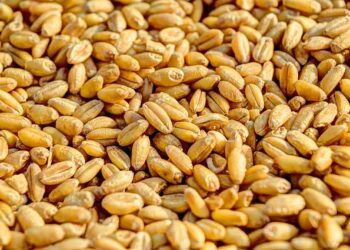Unpacking the Impact of Tariffs on Countries with Minimal Trade Ties to the U.S.
In recent years, tariffs have become a defining feature of former President Donald TrumpŌĆÖs economic agenda, primarily aimed at shielding American industries and correcting trade imbalances. Yet, a closer look at the countries targeted by these tariffs reveals an intriguing anomaly: several nations with little to no export activity to the United States were nonetheless subjected to significant tariff measures. This article delves into five such countries that faced tariff barriers despite their marginal role in U.S. import volumes. By analyzing these cases, we aim to shed light on the broader motivations behind this approach and its repercussions for international trade dynamics.
How Tariffs Affect Nations with Limited Export Footprints
Tariffs are traditionally employed as tools to protect domestic markets from foreign competition or retaliate against unfair trade practices. However, when applied indiscriminatelyŌĆöespecially toward countries that contribute minimally to U.S. importsŌĆötheir consequences can be disproportionate and counterproductive.
For smaller economies or those with limited export engagement, even modest tariffs can impose heavy burdens. Compliance costs rise sharply relative to their trade volume, often leading businesses within these nations into operational difficulties or market contraction. Unlike major trading partners who might absorb such shocks through diversified markets or larger economies of scale, smaller exporters face heightened risks of economic stagnation.
The ripple effects extend beyond economics: local industries may find themselves cut off from vital supply chains while consumers encounter higher prices for everyday goods previously affordable due to open trade channels. Furthermore, imposing tariffs on minor trading partners can strain diplomatic ties and isolate these countries in global forumsŌĆöpotentially undermining long-term cooperation opportunities.
The Economic Rationale Behind Targeting Low-Trade Countries
The logic underpinning selective tariff impositions often challenges traditional economic principles. While tariffs are generally designed either as protective shields for domestic sectors or punitive responses against unfair practices by significant trading partners, targeting nations with negligible export volumes appears strategically ambiguous.
| Country | Annual Exports to U.S. | Applied Tariff Rate (%) |
|---|---|---|
| Nation X | $450,000 | 22% |
| Nation Y | $900,000 | 18% |
| Nation Z | $250,000 | 16% |
This pattern suggests that some tariff decisions were less about immediate economic gain and more about exerting geopolitical leverage or signaling strength in broader negotiationsŌĆöakin to placing strategic chess pieces rather than pursuing direct fiscal benefits.
An apt comparison would be a sports team assigning defensive players not based on where threats are greatest but rather positioning them unpredictably across the fieldŌĆöto unsettle opponents even if it means guarding less critical zones at times.
┬Ā
A recent report from the World Trade Organization (WTO) highlights how such non-traditional tariff applications complicate multilateral negotiations by introducing uncertainty among smaller economies striving for stable market access amid shifting policies worldwide (WTO Annual Report, April 2024).
Toward Smarter Trade Policies: Recommendations for Future Approaches
The evolving geopolitical landscape calls for recalibrated strategies that move beyond blunt instruments like broad-based tariffs imposed without regard for actual trade flows. Policymakers should prioritize nuanced frameworks emphasizing collaboration over confrontation:
- Cultivating partnerships: Strengthening alliances with key trading blocs can enhance collective resilience against disruptive policies while fostering shared growth objectives.
- Pursuing innovation-driven competitiveness: Investing in advanced technologies enables domestic industries to thrive globally without resorting excessively to protectionist measures that risk alienating allies or destabilizing supply chains.
- Dynamically adjusting tariff regimes: Implementing flexible systems responsive in real-time allows governments better control over unintended fallout affecting minor exporters while maintaining leverage where necessary.
- Pursuing transparent dialogue: Engaging directly with affected low-export countries helps build mutual understanding around fair-trade concerns and reduces chances of misinterpretations escalating into conflicts.
┬Ā
┬Ā
┬Ā
┬Ā
┬Ā┬Ā┬Ā
┬Ā┬Ā
┬Ā┬Ā
┬Ā┬Ā
┬Ā┬Ā┬Ā
┬Ā┬Ā┬Ā
┬Ā┬Ā┬Ā
┬Ā┬Ā┬Ā
┬Ā┬Ā┬Ā┬Ā
┬Ā┬Ā┬Ā┬Ā
┬Ā┬Ā┬Ā┬Ā
┬Ā┬Ā┬Ā┬Ā
┬Ā┬Ā┬Ā┬Ā
┬Ā┬Ā┬Ā┬Ā
┬Ā┬Ā┬Ā┬Ā┬Ā┬Ā┬Ā┬Ā┬Ā┬Ā┬Ā┬Ā┬Ā┬Ā┬Ā┬Ā┬Ā┬Ā┬Ā┬Ā┬Ā┬Ā┬Ā┬Ā┬Ā┬Ā┬Ā┬Ā┬Ā┬Ā┬Ā┬Ā┬Ā┬Ā┬Ā┬Ā┬Ā┬Ā┬Ā┬Ā┬Ā┬Ā┬Ā┬Ā┬Ā┬Ā┬Ā┬Ā┬Ā┬Ā┬Ā┬Ā┬Ā┬Ā┬Ā┬Ā┬Ā┬Ā┬Ā┬Ā┬Ā┬Ā┬Ā┬Ā┬Ā┬Ā┬Ā┬Ā┬Ā┬Ā┬Ā┬Ā┬Ā┬Ā┬Ā
┬Ā
┬Ā ┬Ā
┬Ā ┬Ā
┬Ā ┬Ā
┬Ā ┬Ā
┬Ā ┬Ā
┬Ā ┬Ā
┬Ā ┬Ā
┬Ā ┬Ā
┬Ā ┬Ā
ŌĆāŌĆāŌĆāŌĆāŌĆāŌĆāŌĆāŌĆāŌĆéŌĆēŌĆēŌĆēŌĆēŌĆēŌĆēŌĆéŌĆŖŌĆŖŌĆŖŌĆŖŌĆŖŌĆéŌĆéŌĆéŌĆéŌĆéŌĆéŌĆéŌĆéŌĆéŌĆéŌĆéŌĆé
A Path Forward: Balancing Economic Interests With Global Diplomacy
The Trump administrationŌĆÖs decision-making regarding tariffs imposed on low-export-volume countries underscores a complex intersection between economics and geopoliticsŌĆöa reminder that international commerce is rarely governed solely by financial metrics alone.
While advocates argue these measures serve as protective shields bolstering American manufacturing jobs or negotiating advantages during tense global standoffs,
critics caution they risk collateral damage affecting both small partner economies and potentially backfiring onto U.S.-based companies reliant on integrated supply networks.
As global commerce continues its rapid transformationŌĆöwith emerging digital marketplaces reshaping traditional flowsŌĆöthe need remains urgent for policymakers
who balance assertive national interests alongside cooperative frameworks fostering sustainable growth worldwide.
Monitoring ongoing impacts will be essential not only within Washington but also among economists,
diplomats,
business leaders,
and civil society stakeholders invested in shaping equitable future trade landscapes.SEO Keywords Retained:
- “Trump’s tariff strategy”
- “trade policy”
- “tariff impact”
- “U.S.-export relations”
- “global trade relations”















